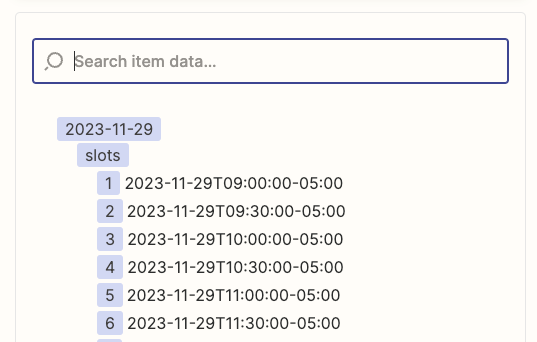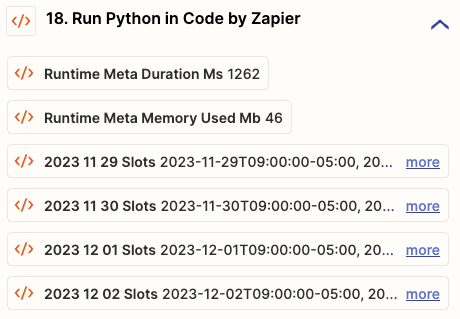I’m using python code to get calendar appointments so that I can use the output fields in the next step. However, the output is making the date itself a dynamic field.
So the responses when choosing from the drop-down will be like this for example:
11-29-2023
11-30-2023
12-1-2023
The problem with that is that since they will always be different, I can’t select them because the next time I run the zap, it’ll be new dates. So I’m not even sure how to concatenate them or really do anything at all with the data. Is there a workaround for this? For example using some sort of text merge field instead of the dropdown or doing something with the python code?
Here are some screenshots. Notice how the variables that can be selected and used in the next step are named with the date. So for example if I run this next week, it’ll be new dates, which means they won’t pull in.







